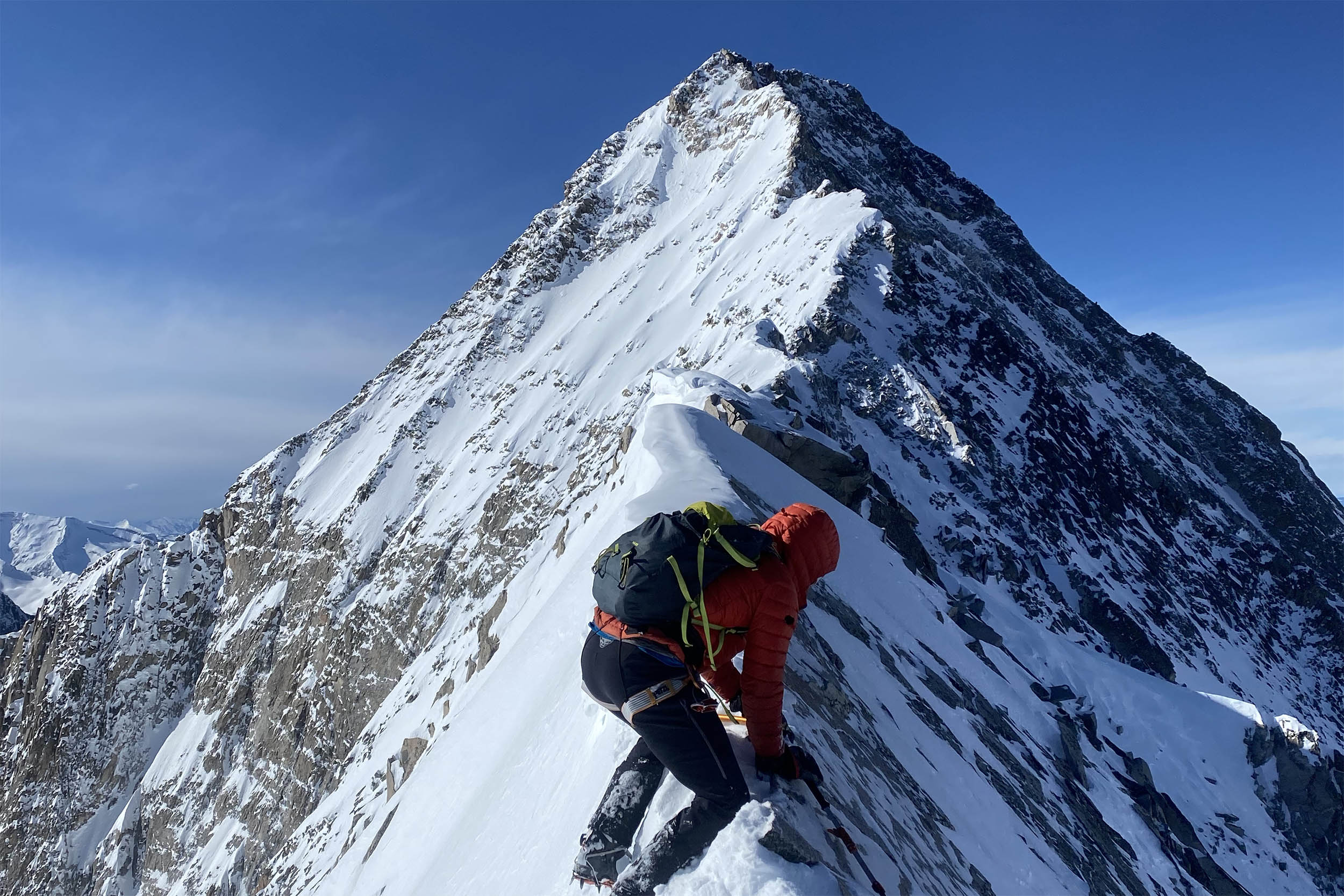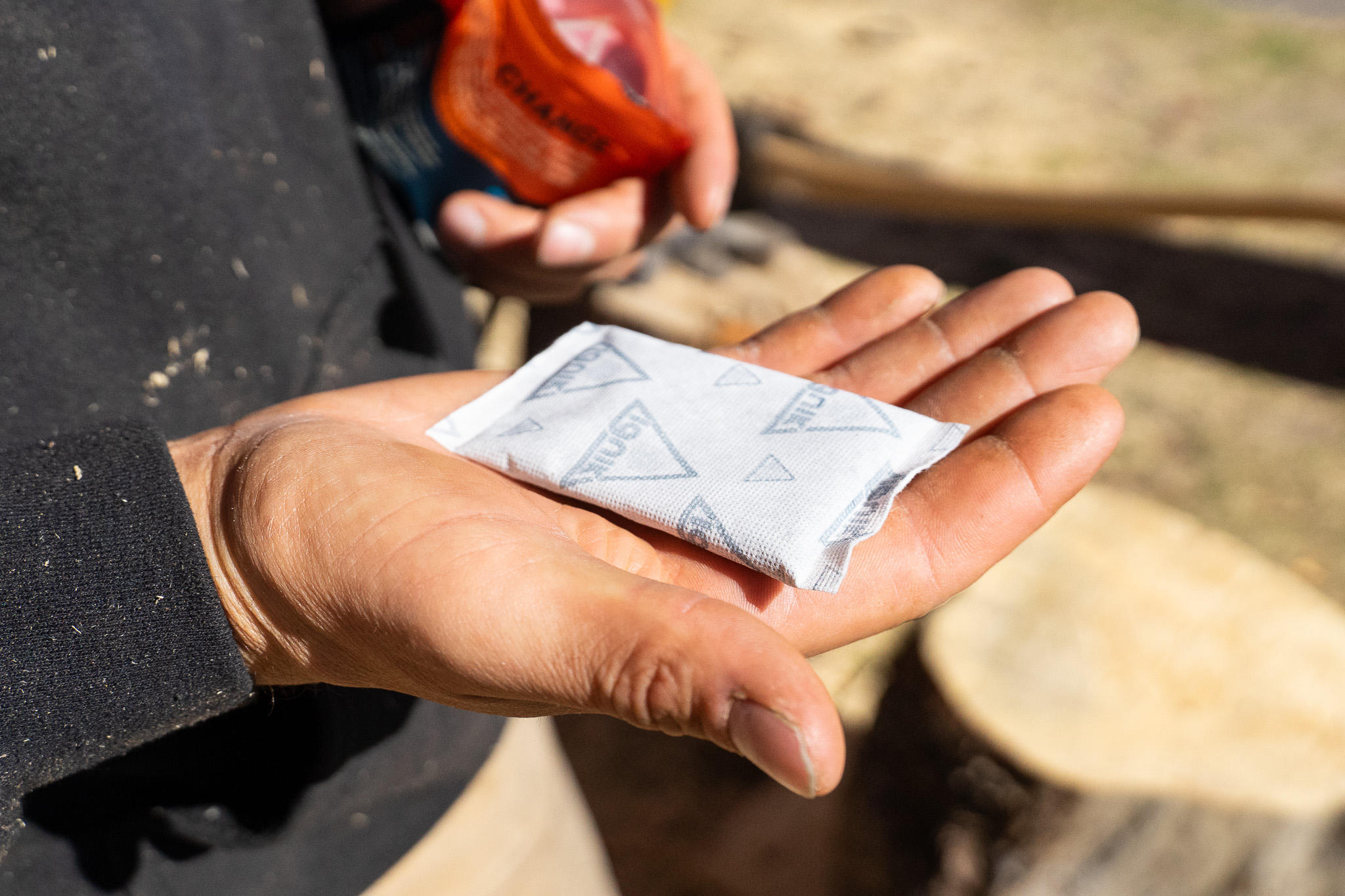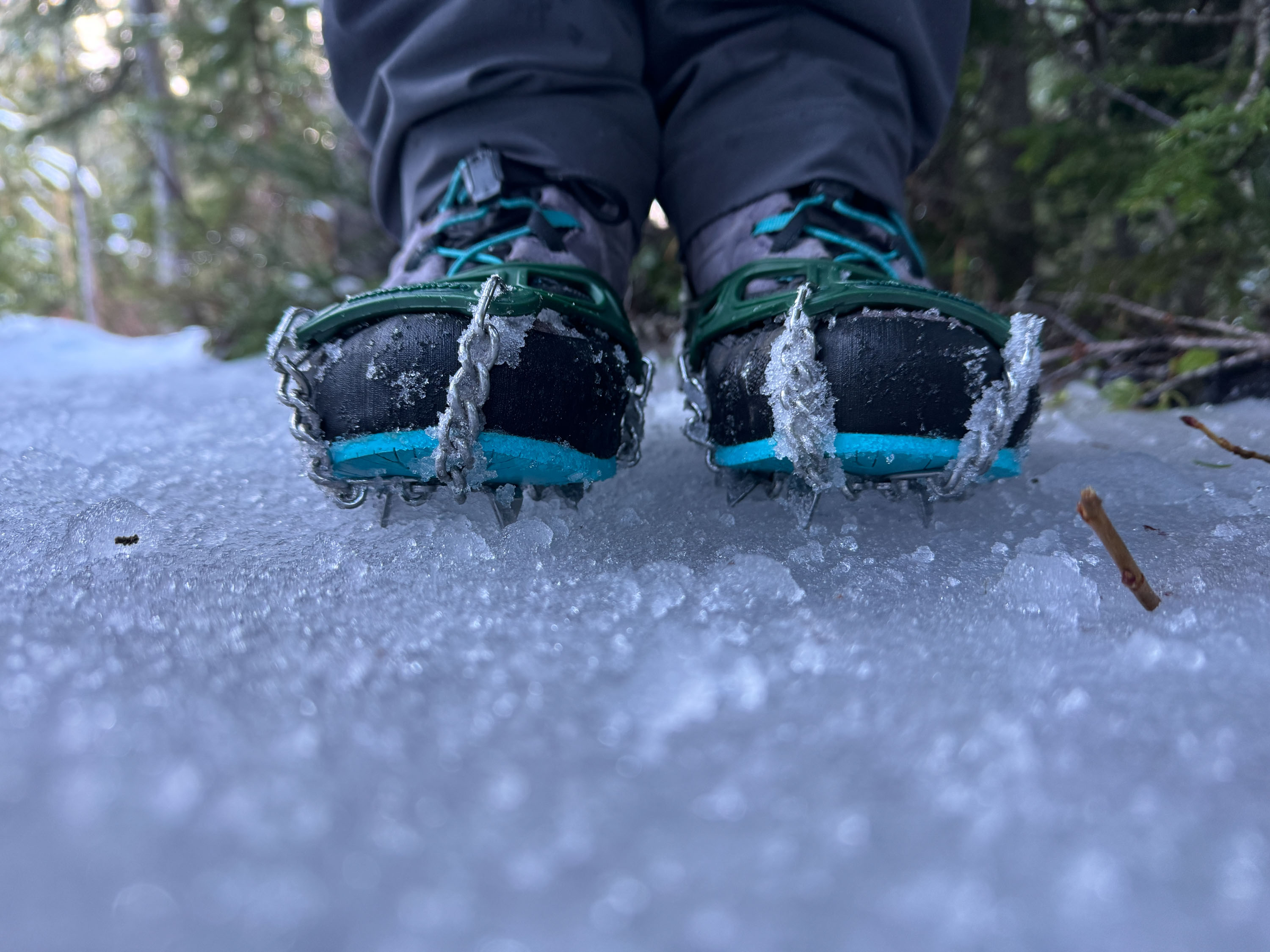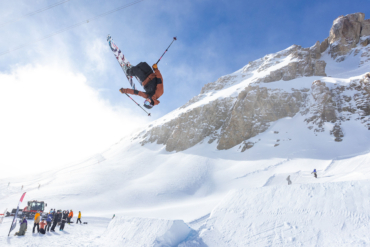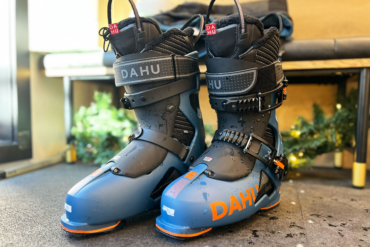Mountain athlete Chris Fisher recently set a scorching new FKT in the dead of Colorado winter. On March 18, the Breckenridge resident bagged his 59th Centennial State 14er — since the beginning of January 2023. His time of 72 days, 13 hours, and 11 minutes shaved an incredible 12 days off Andrew Hamilton‘s previous winter record.
Hamilton was the first person to succeed at the feat, which he accomplished in 2018.
In a display of camaraderie, the former record-holder accompanied Fisher on his final summit, the 14,029-foot Pyramid Peak. Both athletes felt that if Fisher’s project were to go sideways, it would happen at the final peak. Mother Nature nearly proved them right as stormy conditions prior to their summit bid loaded the mountain with oodles of Colorado’s notoriously avalanche-prone snow.
But the two (safely) persevered, setting a new benchmark for what’s possible among 14ers in the southern Rockies.
Editor’s note: The summer 14er roster includes 58 summits, but the winter roster is 59 summits for complicated reasons dealing with the nature of FKT precedents. According to FKT.com, “in summary, it appears that the community has not yet come to a consensus on winter ‘rules.'” Don’t sweat it.
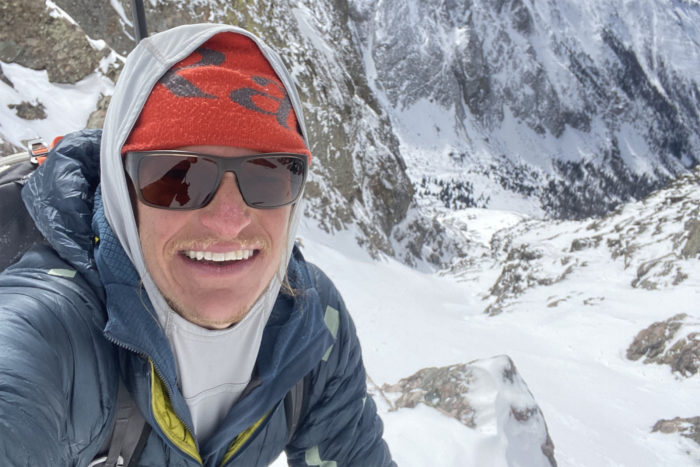
Fisher spent the first three weeks of the project living out of the back of his Toyota Tacoma. After that, he traded his truck for a van, a move that allowed him to maximize sleep and recovery between summits. His original goal was to finish the project in 50 days, but a bout of illness threw a wrench into those plans, and he quickly pivoted to finishing within a calendar season. As he put it, “that still gets me the record.”
And Fisher is no stranger to records, having notched a nod from Guinness in 2021 after setting the record for most elevation gained in a month. His latest FKT was a whole different beast, though. GearJunkie got Fisher on the phone to pick his brain about the winter 14er project, big days in the mountains, and what he’s dreaming of next. The interview has been edited for length and clarity.
Q&A With Chris Fisher
GearJunkie: What was the impetus behind this FKT project?
Chris Fisher: About two years ago, I was looking at skiing all the 14ers. And then me and my partner were driving, and we were listening to Andrew Hamilton’s podcast [about his FKT]. I knew it took him 84 days, but I just didn’t realize how he went about it. He’s a full-time dad and works a full-time job. When I heard that, I thought, huh — I don’t really have a job, I don’t have kids, so maybe I’ll just give it a shot and see what happens.
A few years ago, you broke a world record for max vert. How did that project prepare you for this winter FKT?
[The vert record] taught me that I can grind day in, day out, mentally and physically, and continue to push. And so that aspect of [my 14er project] is pretty similar. I’m here to do this day in, day out. And I’m going to continue to do it until either I don’t make it or I do make it. It’s one or the other.
But honestly, I didn’t realize how involved this was going to be until I got to the peaks that were really technical. So a lot of it was me learning how to use my axe and learning some rope skills out in the high country with a couple of guys who know what they’re doing more so than I do.
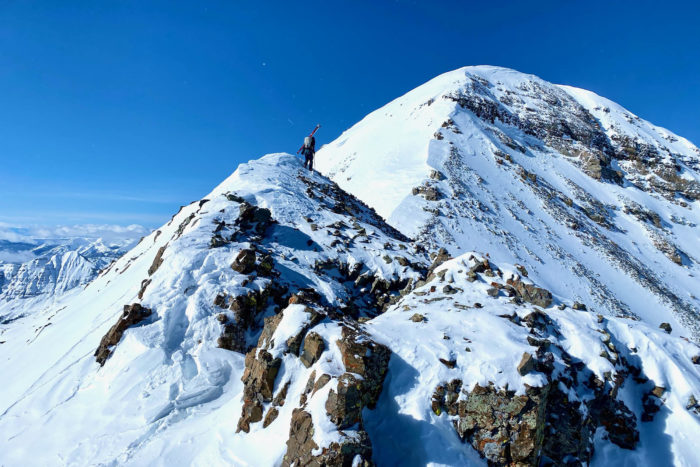
What was the crux of this project?
I went up Wilson Peak the day before a big storm was going to come in, which ultimately shut down the San Juans for the rest of the winter. And while we were climbing, the winds were just absurd.
Looking up from the valley, you just think, there’s no fucking way. There’s no way I’m going to get this peak, and if I don’t get this peak, I’m not going to finish the project because this storm that’s coming in is just going to ruin it. But I kept going and pushing and sure enough, I was able to push through whatever the winds were. I don’t know how high they were, but I know they were pretty intense.
This project required a lot of mountaineering. Do you primarily consider yourself a trail runner, a mountaineer, or a little of both?
I’m kind of trying to figure that out. When I first moved to Colorado, I considered myself a trail runner, and then over the next year and a half, I started evolving into a mountain runner. I’ve skied my entire life, but I didn’t get good at it until I moved to Colorado (I’m from Texas originally).
But I’ve always had curiosity [around] different aspects of mountains and mountaineering in general. Over the past year, I’ve had my focus on evolving [my] endurance skills from trails to mountains to rugged terrain. And also building up the technical skills to bring it all together for future expeditions.
That’s kind of my dream. To go and do the really big peaks of the world. At one point, I thought I wanted to be the ultramarathon guy, but I started finding more of a passion in the mountains. So I would say I’m an ultra-mountaineer? That’s kinda where I’m trying to go. You know, just tackling big mountains as fast as possible.
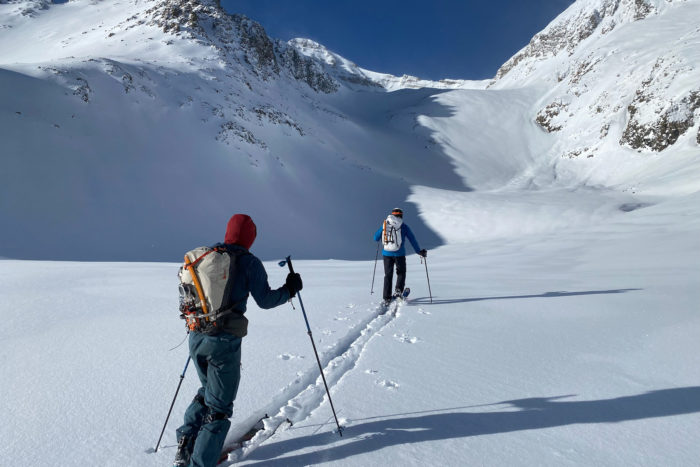
What did your training look like?
None. I kind of just pick things and do them. I’ve never really like trained specifically for [anything]. I don’t think there’s really a way to train for this besides building the technical skills necessary. The endurance has come with all the activities and FKTs that I’ve done prior.
So no, nothing specific, besides just living.
Editor’s note: By “just living,” Fisher means extensive backcountry skiing and trail running all over Colorado.
If you had to do it again, what would you do differently?
If I had to do it again, I would not use snowshoes for the first 26 peaks. My partner was potentially going to do the whole project with me until she got frostbite. She’s not a skier, so we ended up using snowshoes for [a lot of the project]. After looking back at some days we put in, I just know I could move way faster on skis, even with low snow in [certain] regions.
No snowshoes would be the move.
What’s next on your plate?
I don’t know if I see myself in the Himalayas in the next year, but [I hope] I’ll find myself out there [soon]. When it comes to projects and stuff, I would like to climb all the 8,000[-meter peaks].
Depending on how well I transition into the really big mountains, I’ve got some project ideas. But I don’t want to really throw them out there until it makes sense.
